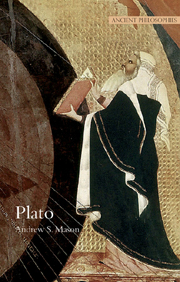6 - Politics
Summary
Plato's views on practical issues form a central part of his thought. They embrace both questions about the good of the individual – ethics – and about that of the community – politics; and any attempt to separate these is rather artificial. His most significant work in this field, the Republic, is concerned with both, and they are closely intertwined. Nevertheless, I shall focus on his political views first, before going on to discuss his ethical views in Chapter 7. I take them in this order simply because, in the Republic, Plato's Socrates expounds his views on the ideal state first, before turning his attention to the individual, and it seems appropriate to follow this order of exposition. This chapter will be concerned primarily with views put forward in the Republic, but will go on to consider Plato's later works in the same field, the Statesman (sometimes called the Politicus, from the Greek word for statesman) and the Laws.
Plato's political views are perhaps the most controversial aspect of his thought. His picture of the ideal state has struck readers, from Aristotle onwards, as unattractive; few would want to live there. This is partly because of some features it has in common with other Greek city states; indeed, in some respects, notably in connection with the position of women, Plato does seem to progress beyond the ordinary attitudes of his day.
- Type
- Chapter
- Information
- Plato , pp. 119 - 134Publisher: Acumen PublishingPrint publication year: 2010

